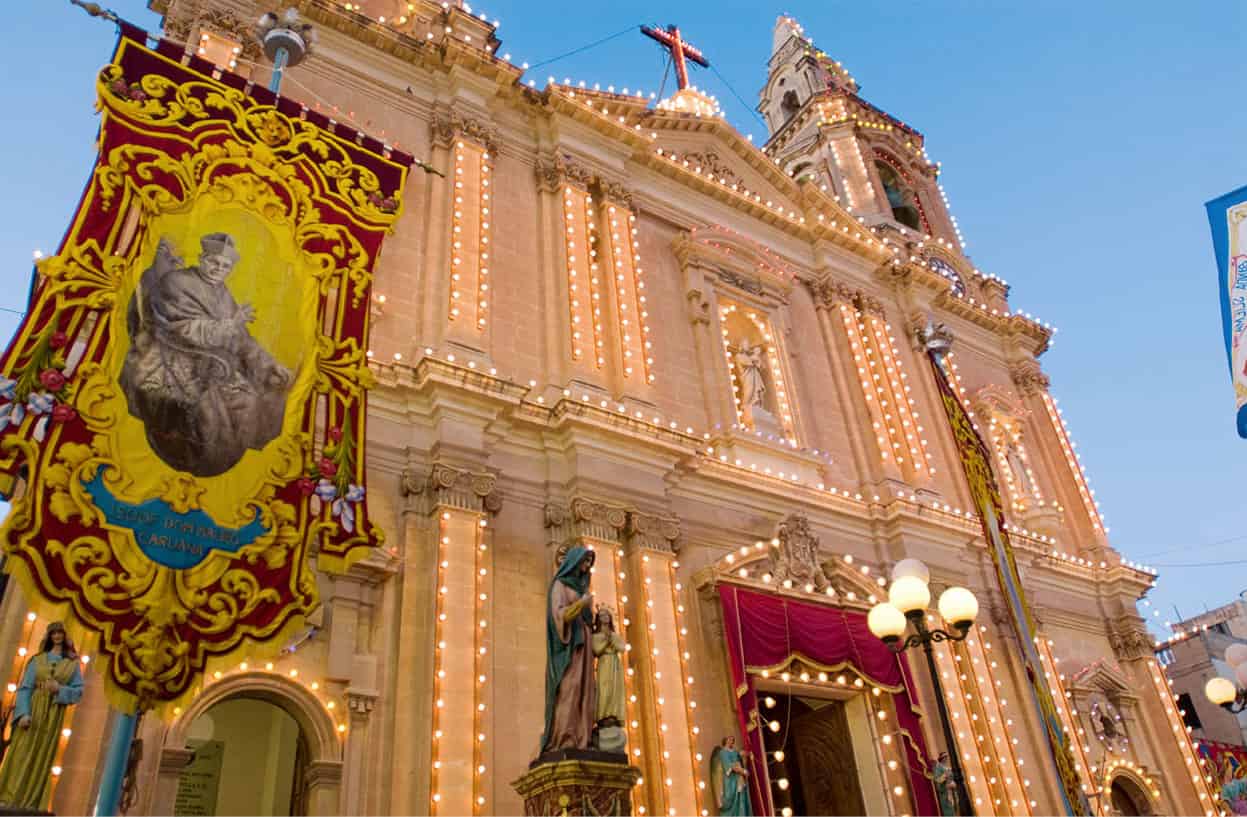Once upon a time, the festa was exclusively a religious event, but nowadays it is more simply an excuse for a village celebration, with big bands, fireworks and a procession. It has also changed from being a one-day event to a weekend of festivities.
A festa literally gets off to a bang with exploding petards, but the real celebrations begin in the evening, when the villagers come out en masse wearing their finery. The local church, too, will be splendidly dressed with red damask hangings, the altar garlanded with flowers and the best silverware on display. Outside, the church will be brilliantly illuminated by hundreds of light bulbs. The streets are also decorated, and vendors sell all sorts of fast foods, from pastizzi to hot dogs and chips. Accompanied by more petards and a brass band, the statue of the village patron saint is paraded through the streets. The day ends at around 11pm or later with a superb firework display – both aerial and floor-mounted, and usually to music.

For the week of its festa, each parish church will be lavishly dressed with twinkling lights and vibrant drapes. Inside is just as festive, so it’s well worth popping in for a peek.
Sylvaine Poitau/Apa Publications
Battle of the Bands